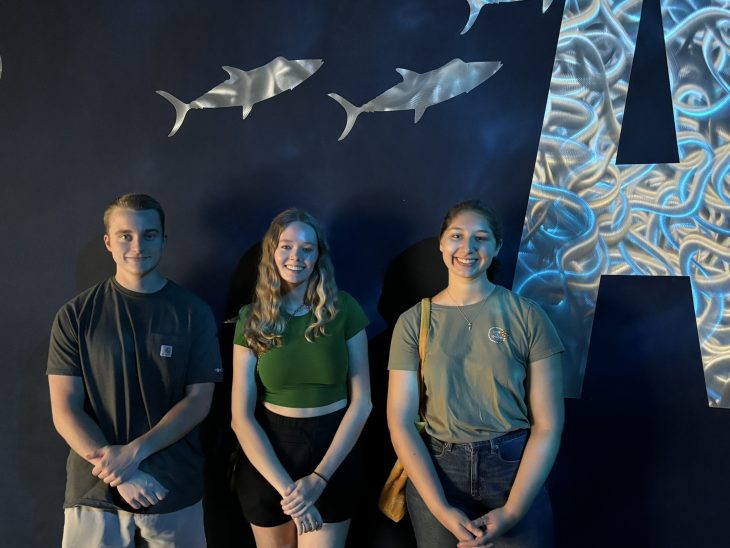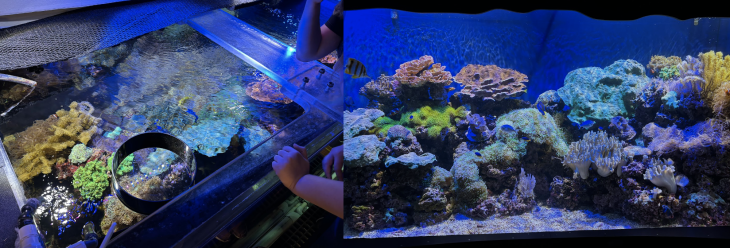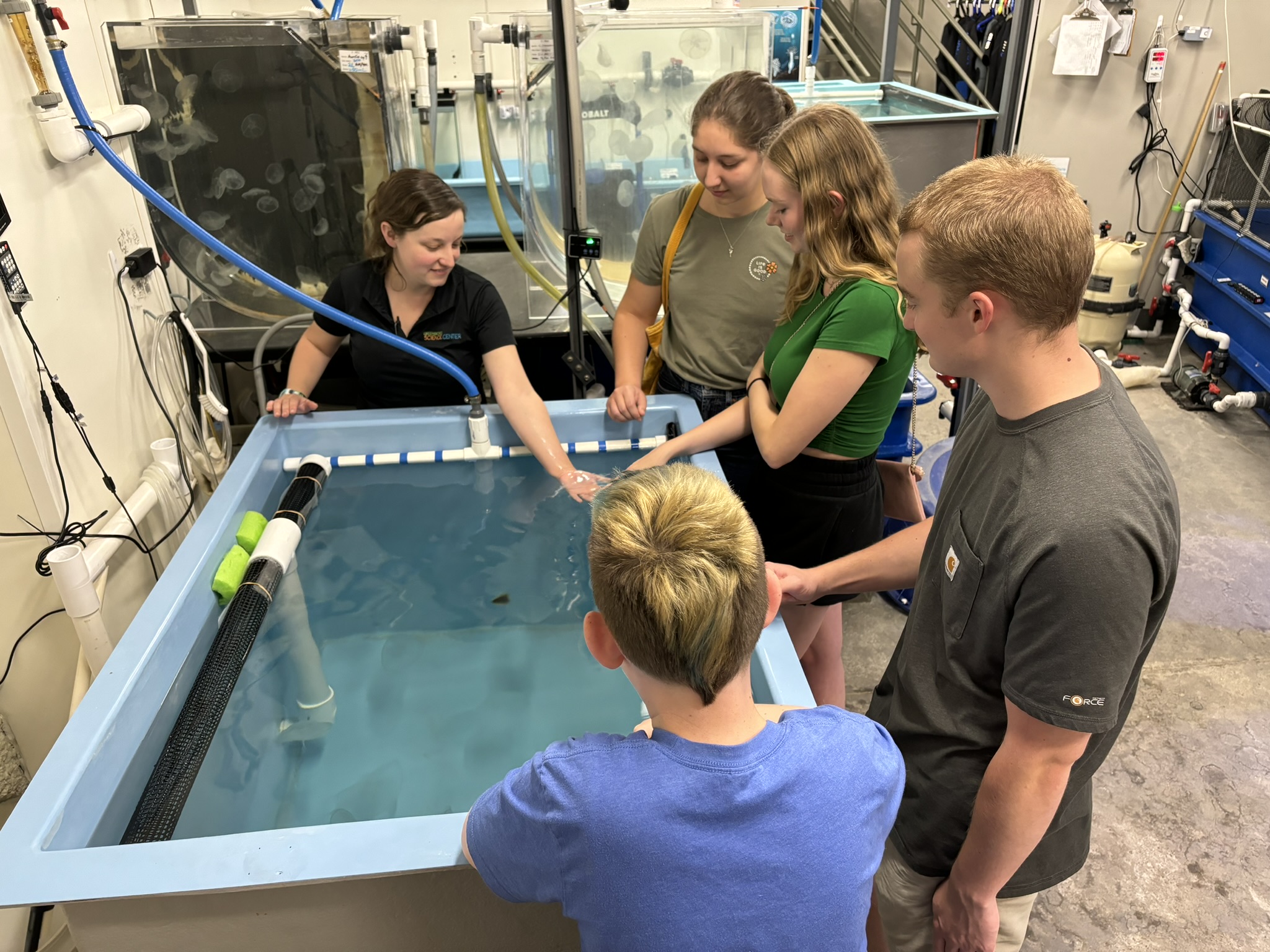The mathematics and statistics students got the unique opportunity to interact with experts in other fields for their research.
Elon University mathematics and statistics students and faculty traveled to the Greensboro Science Center (GSC) in September to engage in hands-on learning with animals that they are studying. As part of the experience, the students met with GSC aquarists Rachel Rodgers and Elizabeth Hincker, who work with and care for corals and jellyfish, respectively.
Jillian Thomas ‘25, an applied mathematics and computer science major, is developing mathematical models for jellyfish movement as part of her Honors Fellows research with Karen Yokley, professor of mathematics. Kelly Donovan ’26, an applied mathematics and statistics major and Erik Blix ‘25, a computer science and statistics major, are working with Nicholas Bussberg, assistant professor of statistics, to better understand and model deep-sea coral biodiversity.
Thomas noted that those in math and statistics tend to discuss their work with other mathematicians and statisticians, but it is important to talk with people in other fields.
“Talking with the aquarists helped me to gain perspective that there are people who could find my research results to be useful,” said Thomas. “The visit helped to reset my perspective on my research thesis and what motivated me to do it in the first place.”
“It’s easy to get lost in the numbers, data, and code, and forget what we’re doing the research for,” said Donovan, a Lumen Prize recipient and Elon College Fellow. “It was nice to see both corals in person, as well as others that care about them.”
Rodgers emphasized that it’s “important for researchers to have exposure to the topics of their research. The results of the data will remain concepts and theories if there’s no real-world connection for application.”

The students appreciated the hands-on experience, noting how valuable it is to their education.
“It’s hard to picture exactly what corals are and can do, whether it’s their size, color or habitat that they create,” said Donovan of the hands-on experience. “At the GSC, I saw how beautiful they are in real life and how they take care of organisms around them. There is no substitute for talking to someone who deals with [the organisms] on a daily basis.”
At the GSC, Hincker explained the life cycles of jellyfish and showed the Elon group the different stages. The students and faculty were able to see how jellyfish move and learn about their biology. Hincker discussed how different jellyfish species have evolved to capture food and move throughout the water column in unique ways.
“Biology can throw you a curve ball sometimes,” said Hincker. “The real animals don’t often look like drawings in a book or photos on a page. It’s important to experience them as they physically exist. It may even spark some new ideas.”
The Elon group was then able to see the diversity in colors, size and shape of corals that Rachel manages. Rachel explained how corals, which are animals, acquire food in a symbiotic relationship with algae, compete with each other for space and protect themselves from other predators. The Elon students also learned how corals are endangered due to human-produced threats such as ocean warming and acidification, and why it’s important to share the message with others.

“With the ever-increasing number of challenges and obstacles animals face in the wild, zoos and aquariums are more important than ever for outreach and education,” says Rodgers. “Exposure to different types of animals expands the horizons of everyone who sees these exhibits. The more we can get the general public to care, the more positive impact we can have on the future, to understand, love and protect the planet and the organisms that live in it.”
Bussberg and Yokley extend their gratitude to Rodgers, Hincker and the GSC for enhancing their students’ education and research projects.
“One of the primary reasons why I chose Elon was because of the strong undergraduate teaching experience,” said Donovan. “This trip solidified my faith in Elon’s passions in research, discovery and creation.”
The experience is part of a growing collection of collaborations between Elon University and the Greensboro Science Center. Special thanks are also extended to Nicole Wiegand, GSC’s diving safety officer, for coordinating this recent experience.



